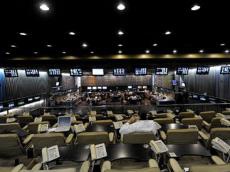|
|
TODAY.AZ / Business
World's 5 hottest stock markets
29 April 2013 [17:40] - TODAY.AZ
 #1 Japan: +34%
#1 Japan: +34%After ending 2012 almost 40% below their all-time highs set just a year earlier, Argentine stocks have been on a tear in 2013.
But the advance isn't being driven by improving fundamentals.
It's "a classic contrarian play," said Asha Mehta, portfolio manager at Acadian Asset Management. "Argentina's market was one of the worst frontier markets in 2012. Prices became so depressed that bargain hunters began to see value and have started to come back in."
While stock prices may be low, there are still plenty of risks, warns Mehta.
Argentine President Cristina Fernández de Kirchner, who became a controversial figure after nationalizing Argentina's largest oil company last year, has come under pressure for her economic policies.
While she's still popular, the Argentine people have increasingly become disgruntled over her inability to turn the economy around. More than a million protestors recently took to the streets to express their anger.
Argentina has one of the highest inflation rates in the world, with most economists projecting it at 25%.
Meanwhile, all eyes are also on a U.S. appeals court ruling that could push Argentina to the brink of default. A panel of judges is deciding how to settle a case between the Argentine government and holdout creditors, who claim they are owed nearly $1.5 billion on their defaulted bonds.
Given the ongoing uncertainty in Argentina, Mehta expects trading to be volatile.
#4 Kuwait: +23%
Stocks in Kuwait have rallied to levels not seen since May 2010, helped by strong corporate earnings and the government's plans to invest in infrastructure.
The market has been particularly bolstered by smaller companies, such as shooting range operator National Ranges, whose shares have climbed almost 20% this year.
Meanwhile, Kuwait also boasts the sixth-largest oil reserves in the world and is one of the largest oil producers and exporters.
Amid modest growth in oil production, Kuwait's economy is forecast to grow by 4.5% in 2013 and 5% the following year, according to Kuwait Financial House Research.
#5 Philippines: +20%
Philippine stocks have soared to all-time highs this year, as the Southeast Asian nation earned its first-ever investment grade credit rating.
The Philippines earned a BBB- rating and a stable outlook from Fitch Ratings in March. The ratings agency gave kudos to the country's resilient economy and its moderate budget deficit thanks to improved fiscal management by President Benigno Aquino.
In addition to the investment grade rating, investors have been drawn to the Philippines because it's shielded from the economic slowdown in China, said Ashraf Laidi, chief global strategist at City Index in London.
URL: http://www.today.az/news/business/121972.html
 Print version
Print version
Views: 1138
Connect with us. Get latest news and updates.
See Also
- 06 November 2025 [14:59]
Amendments to tax code aim to boost investment, economic activity, says official - 05 November 2025 [15:35]
Azerbaijan to raise social assistance threshold to ?300 as of next year - 05 November 2025 [10:00]
Azeri Light crude oil prices fall - 04 November 2025 [12:36]
Justice Ministry and SMBDA hold meeting with business associations - 04 November 2025 [11:23]
Energy Ministry hosts information session on energy efficiency - 03 November 2025 [14:02]
Azerbaijan showcases energy transition experience at ADIPEC 2025 - 02 November 2025 [08:30]
Baku opens door to foreign partners in Zangezur Corridor development - 31 October 2025 [12:35]
EU names Azerbaijan strategic partner in Middle Corridor initiative - 30 October 2025 [12:58]
Azerbaijan, Türkiye sign MoU to strengthen cooperation in insurance sector - 30 October 2025 [12:02]
Azerbaijan and OECD discuss prospects for enhanced cooperation
Most Popular
 Justice Ministry and SMBDA hold meeting with business associations
Justice Ministry and SMBDA hold meeting with business associations
 Academics are puzzled: it's time for Azerbaijani science to get down to business
Academics are puzzled: it's time for Azerbaijani science to get down to business
 Armenian priests threaten to "blow up the Internet"
Armenian priests threaten to "blow up the Internet"
 Armenia began to receive benefits from defeat in war - on eve of anniversary of Victory of Azerbaijan
Armenia began to receive benefits from defeat in war - on eve of anniversary of Victory of Azerbaijan
 War crimes trial of Ruben Vardanyan advances as victims testify in Baku
War crimes trial of Ruben Vardanyan advances as victims testify in Baku
 Azerbaijani and Algerian foreign ministers discuss expanding bilateral cooperation
Azerbaijani and Algerian foreign ministers discuss expanding bilateral cooperation
 China launches production of flying cars
China launches production of flying cars
